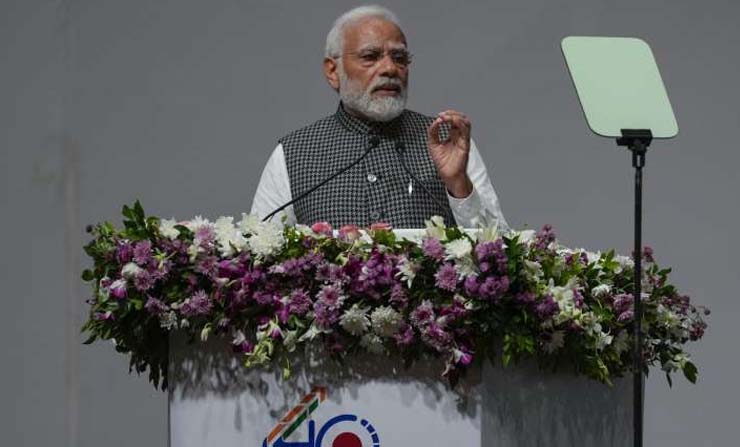
Recently White House made a statement that China would not be happy to hear. As per White House Asia Coordinator Kurt Campbell, India will be a great power, not just a US ally.
“India has a unique strategic character. It will not be an ally of the United States. It has a desire to be an independent, powerful state, and it will be another great power,” Kurt Campbell said at the Aspen Security Forum in Washington. The strategic coherence between India and the US is “growing in almost every direction,” he added.
According to Campbell, relations between countries “are built not just on concerns about China” but on “a deeper understanding of the importance of synergy between societies.” Further, Campbell recalled the 2023 meeting of the Quad.
In addition to India, the Quad is made up of the United States of America, Australia, and Japan; all four of these countries take positions that are publicly antagonistic toward China. India requires a balancer to compensate for its lack of power in its bilateral interactions with Beijing. This requirement should be emphasised in light of the fact that China’s potential is on the rise and continuing to expand. At the moment, the United States of America is doing this function. Concurrently, the Indian elite is focused on achieving its own goals and has little interest in serving the United States in any capacity. And any military alliance with the United States assumes Washington’s complete dominance, with no semblance of equality being present in the relationship.
In light of this, Campbell’s prediction that “India will not be an ally of the United States, but another great power” is, for the most part, in line with the actual state of affairs. At the same time, the White House coordinator for Asia is being dishonest when they argue that relations between the United States and India are not based on the anti-Chinese vector. The United States of America is significantly more likely to rake in the heat if they play their cards wrong.
Furthermore, Washington is in need of a de facto ally to combat Beijing. The fact that India and China share a border, possesses nuclear weapons, and has a population that is about equivalent to China’s makes India a perfect candidate for this role. The United States of America and others developed the Quad format expressly for use in India. Another factor to take into consideration is that New Delhi is still opposed to the transformation of the Quad into an anti-Chinese military and political group. However, from India’s perspective, it serves pretty effectively in the role of a counterweight to China.
Contrary to the western discourse
There is a considerable amount of disagreement to the classification of India as a Great Power and a country that is in the second echelon, and this opposition is primarily found in Western discourse. The primary reason for this is because the basic idea of a Great Power did not take into account the countries of Asia when it was conceived in the West during the 19th century.
Nevertheless, right now two Asian nations, namely India and China, can simultaneously lay claim to the entire designation of Great Power. Additionally, the socio-economic indices of the country have been called into question. At present, 21% of India’s population is considered to be living in poverty, although the difference between social classes is not nearly as great as it is in the United States.
In 2011, the Indian economy came in third place among other economies around the world. In 2019, India’s GDP amounted to almost 3 trillion US dollars, which is one of the reasons why the country is now considered to be one of the strongest countries in the world economically, surpassing France and England in the process. After the global pandemic, assessments from experts suggest that India will sustain the economic losses and will be able to maintain its rate of economic expansion.
Since the political system in India is not Western but is seen as being similar to Western political systems, India is often considered to be one of the most democratic countries in Asia. If a few decades ago, people thought that the East was relatively boring, they would not believe it now. Currently, there is a massive gap in the development of countries, and India is one of the countries that is leading the pack.
Another factor is strategic culture, a nebulous concept that has more to do with the military sector. India, on the other hand, does noticeably better than both the EU and Japan in this area.
India is among the top five most powerful states in the world in terms of the military-political parameter, despite the fact that the indicators of its nuclear power are quite modest, as India only has 130-140 nuclear supplies. The country ranks third in the world in terms of its military budget, coming in behind only the United States and China.
– The writer is an Aerospace and Defence Analyst & Director ADD Engineering Components (India) Pvt Ltd (An Indo- German Company). The views expressed are of the author and do not necessarily reflect the views of Raksha Anirveda








